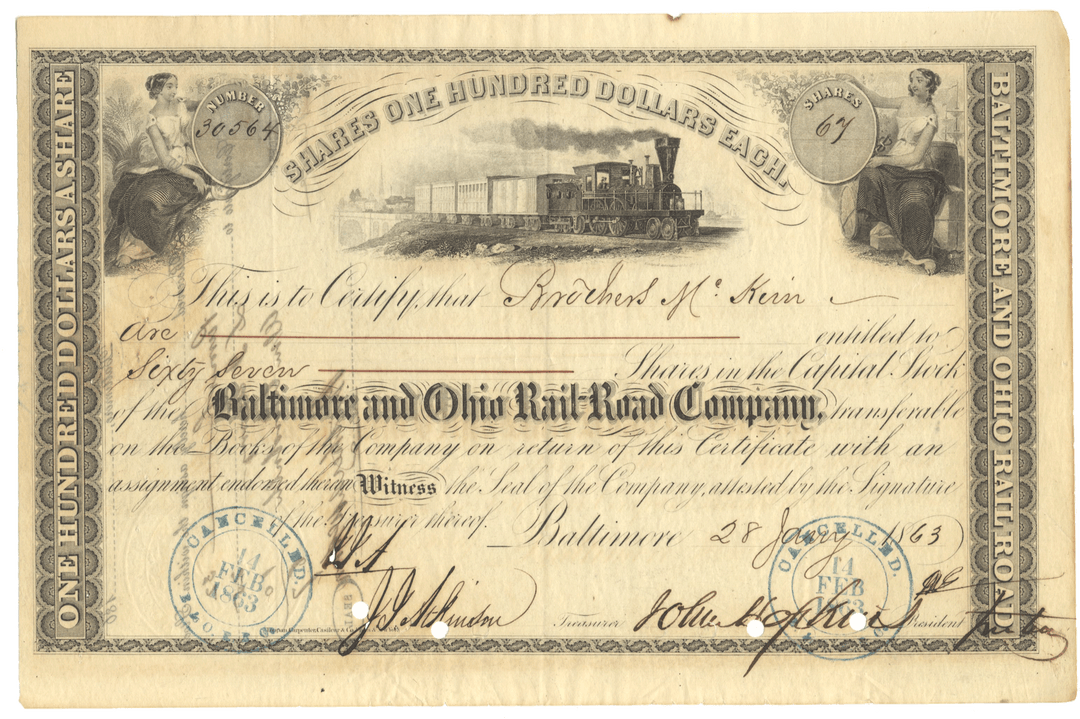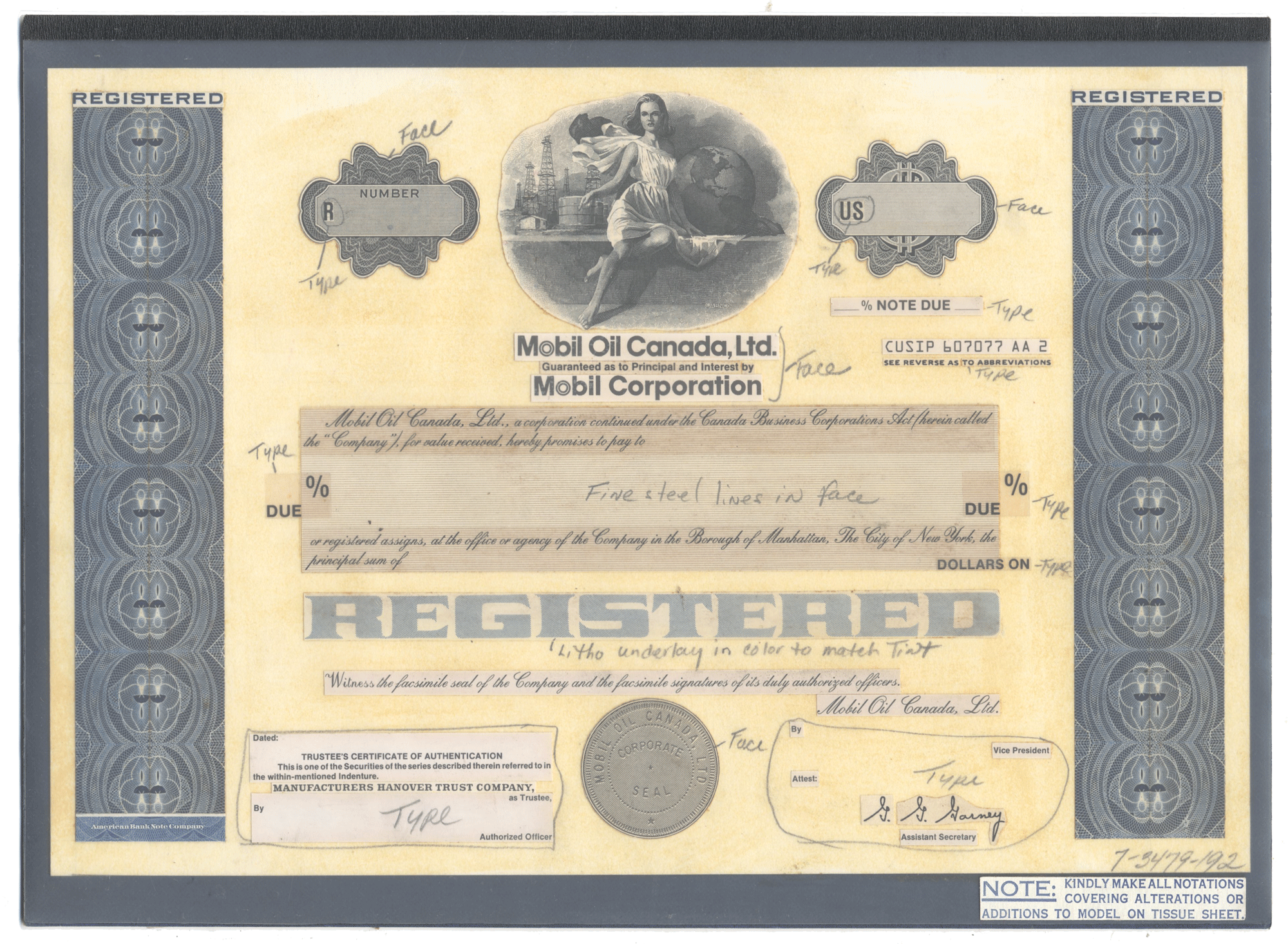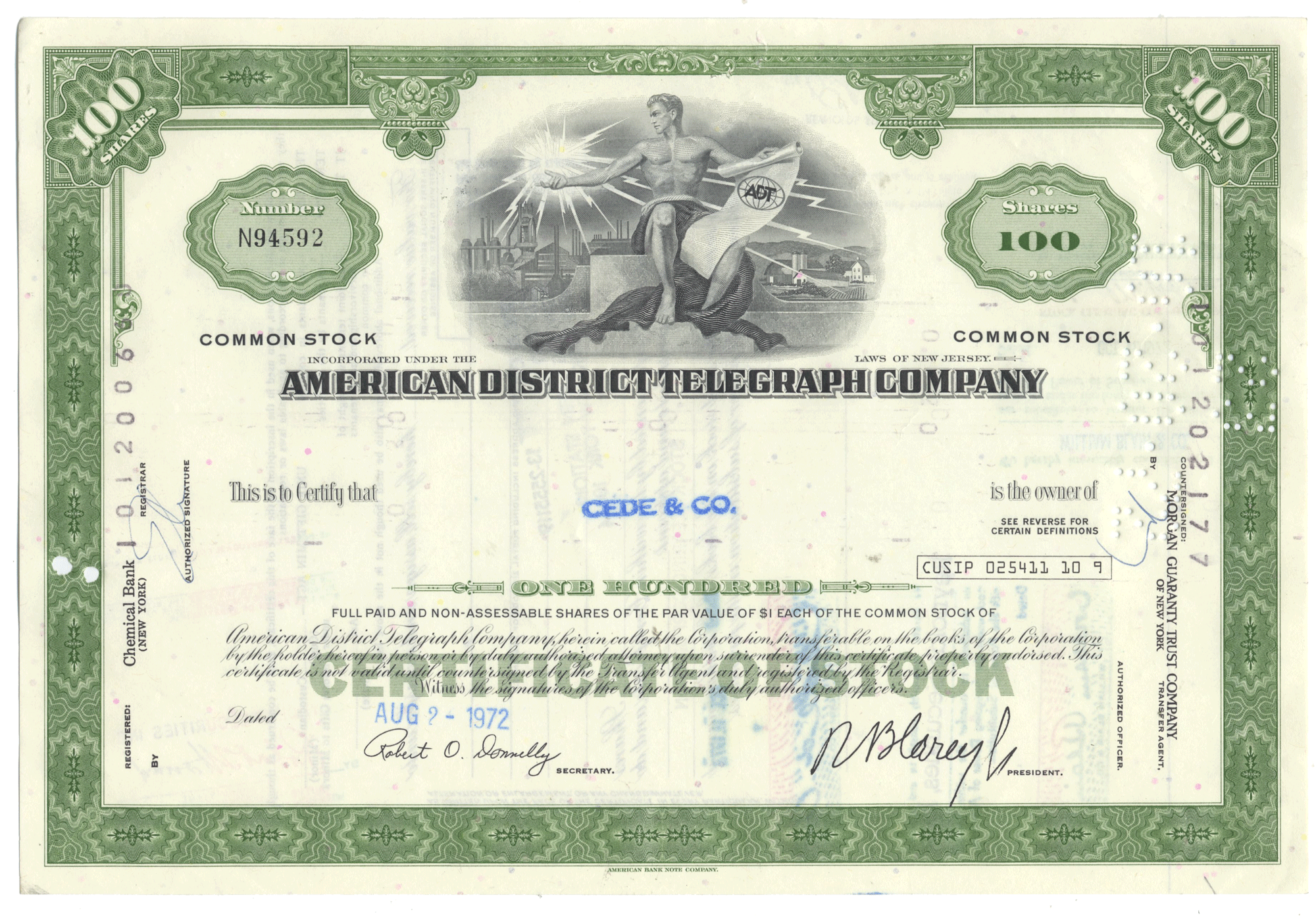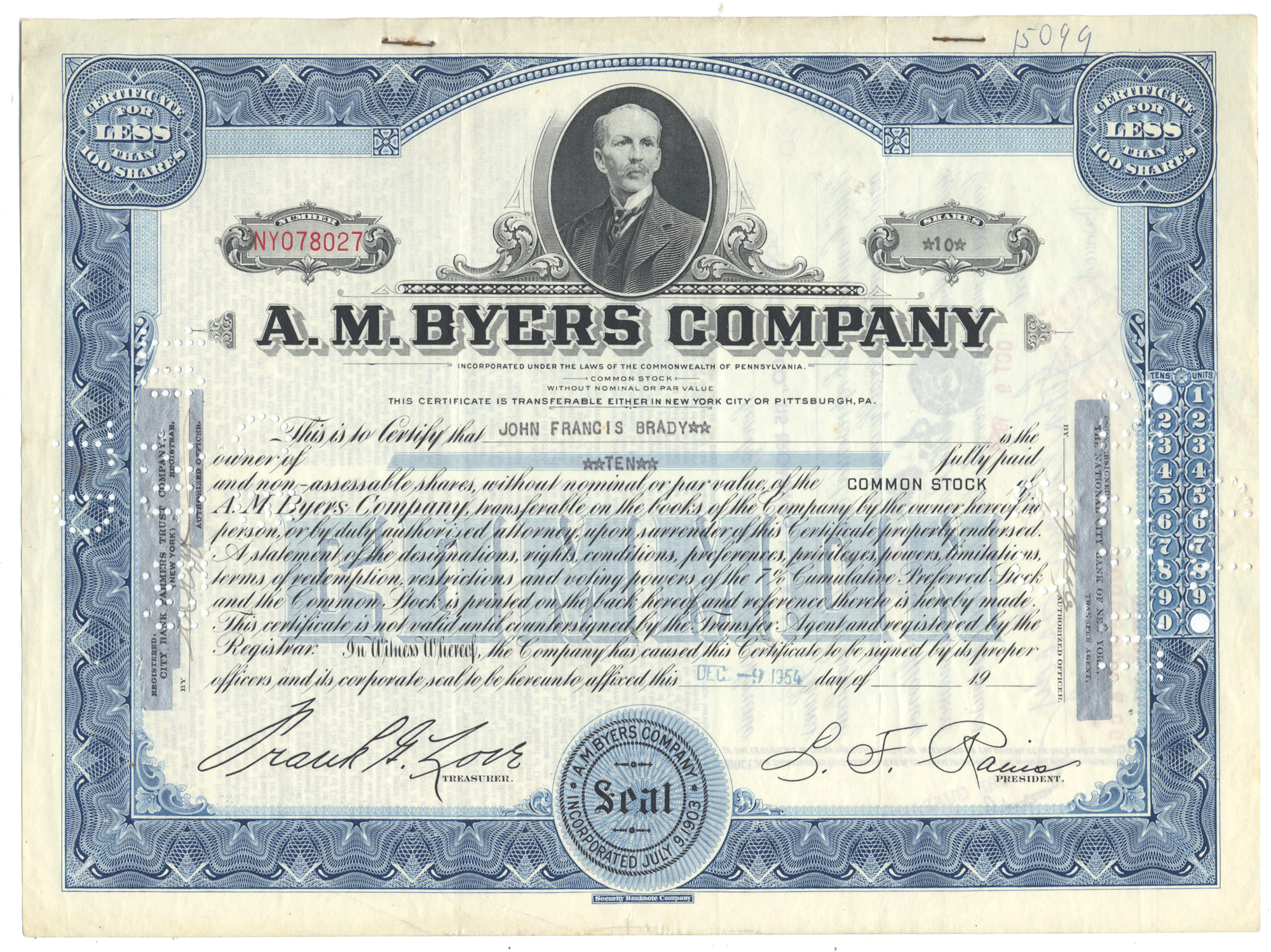
Baltimore and Ohio Rail-Road Company (Signed by Johns Hopkins)
- Guaranteed authentic document
- Orders over $50 ship FREE to U. S. addresses
Regular price
$ 250.00
$ 250.00
Regular price
Sale price
$ 250.00
$ 250.00
Save
/
You will receive the exact certificate pictured
Over 150 years old
Capital stock
January 28, 1863
Issued, canceled
Toppan, Carpenter, Casilear & Co.
Hand signed
10" (w) by 6 1/2" (h)
Signed by Johns Hopkins.
Johns Hopkins (May 19, 1795 – December 24, 1873) was an American merchant, investor, and philanthropist. Born on a plantation, he left his home to start a career at the age of 17, and settled in Baltimore, Maryland, where he remained for most of his life.
Hopkins invested heavily in the Baltimore and Ohio Railroad (B&O), which eventually led to his appointment as finance director of the company. He was also president of Baltimore-based Merchants' National Bank. Hopkins was a staunch supporter of Abraham Lincoln and the Union, often using his Maryland residence as a gathering place for Union strategists. He was a Quaker and supporter of the abolitionist cause.
Hopkins was a philanthropist for most of his life. His philanthropic giving increased significantly after the Civil War. His concern for the poor and newly freed slave populations drove him to create free medical facilities, orphanages, asylums, and schools to help alleviate the impoverished conditions for all, regardless of race, sex, age, or religion, but especially focused on the young. Following his death, his bequests founded numerous institutions bearing his name, most notably Johns Hopkins Hospital and the Johns Hopkins University system, including its academic divisions: Johns Hopkins School of Nursing, Johns Hopkins School of Medicine, Johns Hopkins Carey Business School, Johns Hopkins Bloomberg School of Public Health, and Johns Hopkins School of Advanced International Studies. At the time, it was the largest philanthropic bequest ever made to an American educational institution.
Hopkins invested heavily in the Baltimore and Ohio Railroad (B&O), which eventually led to his appointment as finance director of the company. He was also president of Baltimore-based Merchants' National Bank. Hopkins was a staunch supporter of Abraham Lincoln and the Union, often using his Maryland residence as a gathering place for Union strategists. He was a Quaker and supporter of the abolitionist cause.
Hopkins was a philanthropist for most of his life. His philanthropic giving increased significantly after the Civil War. His concern for the poor and newly freed slave populations drove him to create free medical facilities, orphanages, asylums, and schools to help alleviate the impoverished conditions for all, regardless of race, sex, age, or religion, but especially focused on the young. Following his death, his bequests founded numerous institutions bearing his name, most notably Johns Hopkins Hospital and the Johns Hopkins University system, including its academic divisions: Johns Hopkins School of Nursing, Johns Hopkins School of Medicine, Johns Hopkins Carey Business School, Johns Hopkins Bloomberg School of Public Health, and Johns Hopkins School of Advanced International Studies. At the time, it was the largest philanthropic bequest ever made to an American educational institution.
Additional Information
Certificates carry no value on any of today's financial indexes and no transfer of ownership is implied. All items offered are collectible in nature only. So, you can frame them, but you can't cash them in!
All of our pieces are original - we do not sell reproductions. If you ever find out that one of our pieces is not authentic, you may return it for a full refund of the purchase price and any associated shipping charges.





